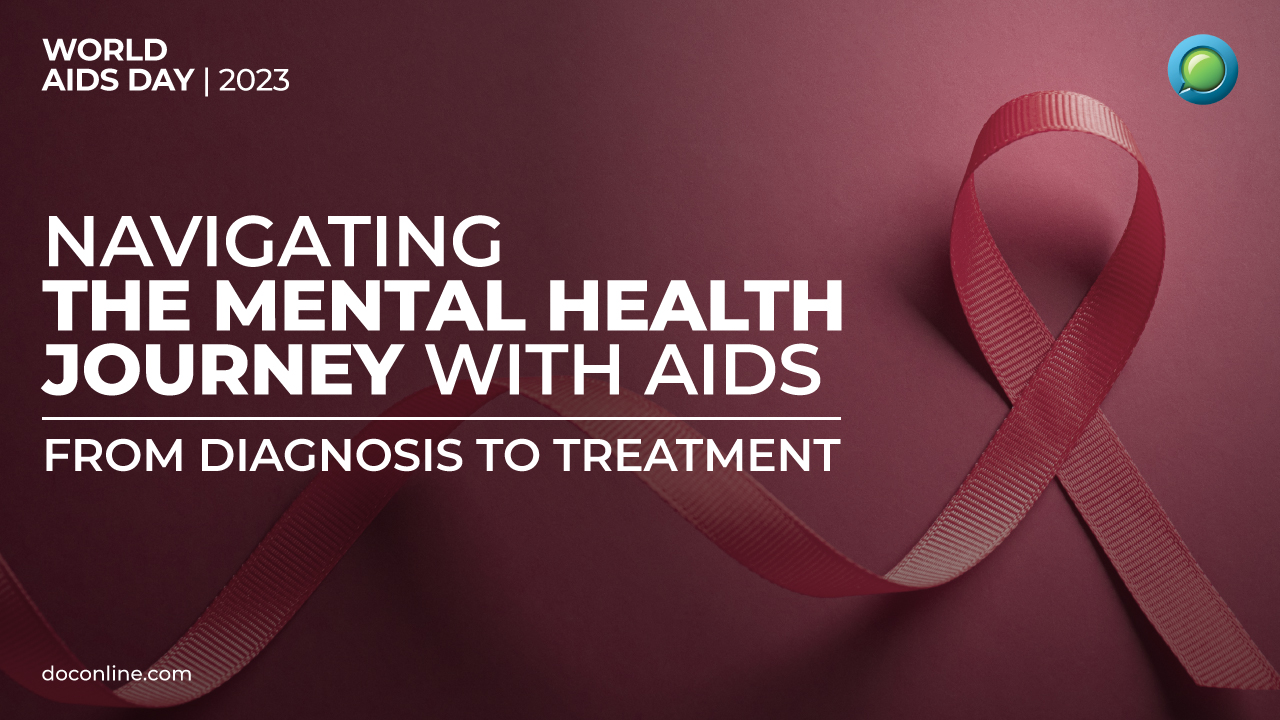On World AIDS Day, it's imperative to recognize that addressing AIDS-related stigma is a crucial step towards holistic healthcare. A diagnosis of HIV not only brings physical health concerns but also significant mental health challenges. From the moment of diagnosis through the journey of seeking and undergoing treatment, individuals may grapple with a range of emotions. Recognizing and addressing these mental health aspects is crucial.
Diagnosis: The Initial Impact
-
Shock and Denial:
- Challenge: The news of an HIV diagnosis often induces shock and disbelief.
- Solution: Creating a supportive environment where individuals can express their emotions without judgment is vital. Access to counseling services can provide a safe space for processing the diagnosis.
-
Stigma and Shame:
- Challenge: Societal stigma and internalized shame can lead to isolation and secrecy.
- Solution: Education and awareness campaigns are essential to combat stigma. Encouraging open conversations about HIV reduces shame and fosters a more supportive community.
Pre-Treatment Period: Coping with Uncertainty
-
Fear and Anxiety:
- Challenge: The period between diagnosis and treatment initiation can be anxiety-provoking.
- Solution: Regular communication with healthcare providers, peer support groups, and counseling can help alleviate fears and provide information about the treatment process.
-
Disclosure Dilemmas:
- Challenge: Deciding when and how to disclose one's HIV status can be mentally taxing.
- Solution: Encouraging open dialogue about disclosure in counseling sessions can help individuals navigate this decision. Support groups provide a platform to learn from others who have faced similar challenges.
Treatment Initiation: Managing the Mental Health Continuum
-
Antiretroviral Therapy (ART) Adjustment:
- Challenge: Adjusting to a new medication routine and potential side effects.
- Solution: Regular check-ins with healthcare providers, peer support, and educational resources about ART can empower individuals to manage their treatment effectively.
-
Depression and Isolation:
- Challenge: The chronic nature of HIV can contribute to depression and feelings of isolation.
- Solution: Mental health support, including therapy and support groups, is crucial. Encouraging social connections and combating isolation aids in mental well-being.
Long-Term Management: Sustaining Mental Wellness
-
Chronic Stress:
- Challenge: Managing a chronic condition can lead to ongoing stress.
- Solution: Incorporating stress-management techniques such as mindfulness, meditation, and regular exercise into the routine can enhance mental resilience.
-
Relationship Strain:
- Challenge: Navigating relationships can be complex, especially regarding disclosure and intimacy.
- Solution: Couples counseling, relationship education, and support groups for partners can provide a space to address concerns and strengthen relationships.
-
Counseling and Mental Health Maintenance:
- Challenge: The need for ongoing mental health support.
- Solution: Integrate mental health check-ins into routine medical care. Offering accessible counseling services, both in-person and online, ensures ongoing support for mental well-being.
Community Support and Advocacy
-
Community Engagement:
- Challenge: Feeling isolated from mainstream society.
- Solution: Community engagement and advocacy initiatives can empower individuals to be agents of change. Creating platforms for HIV-positive individuals to share their stories reduces isolation.
-
Empowerment through Education:
- Challenge: Lack of awareness about HIV and mental health.
- Solution: Educational campaigns destigmatize HIV and mental health discussions. Community workshops, online resources, and partnerships with educational institutions contribute to a more informed society.













